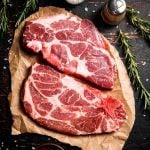Jimsonweed has been confirmed in 10 Alberta counties since it was first spotted in a canola field at the end of August.
The poisonous weed, also known as devil’s trumpet, has been found in cereal and canola fields in Westlock, Barrhead, Leduc, Parkland, Camrose, Lacombe, Ponoka, Wetaskiwin, Wheatland and Flagstaff counties, said an Alberta Agriculture news release.
“We are encouraging producers and agricultural fieldmen to be on the lookout for jimsonweed, as early detection and eradication is very important to stop the spread,” said the release.
Read Also

Ag ministers hear request for regulatory change, more infrastructure development
Canada’s agriculture ministers met today in Winnipeg after postponing their usual July in-person meeting due to wildfires.
Jimsonweed is a prohibited weed under the federal Seeds Act, and it is illegal to sell seed containing prohibited noxious weed seeds.
The Canadian Food Inspection Agency is heading the investigation into how the weed got into prairie fields. It has also been found in fields in Saskatchewan and Manitoba.
In an email, CFIA said it is trying to track down the seed source.
“The CFIA is working with the seed company to identify the suspected seed lots to determine how the potential contamination may have occurred,” the CFIA said.
“If a seed lot contaminated with prohibited noxious weed seeds was knowingly imported into or sold in Canada, it would be considered a contravention of the Seeds Act and dealt with accordingly.”
It is up to the provinces to deal with the safe handling of the weed. Alberta Agriculture asks farmers to report suspected sightings to de-partment officials or ag fieldmen.
It also urges producers to take precautions when handling the weed and ensure it is removed before the field is swathed:
- Producers should wear gloves and long sleeves when pulling weeds by hand from the field.
- Plants should be double bagged for landfill disposal.
- Canola stubble should not be baled for feed as this plant poses a risk for livestock.
- Weeds should not be composted or burned because seeds could survive, and burning will release toxins into the air.














